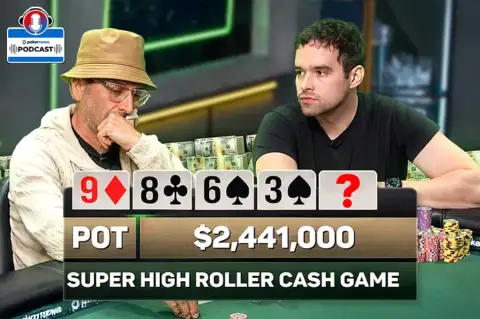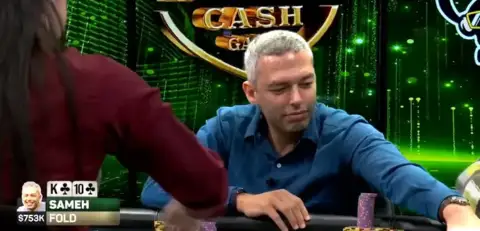The game of poker has changed a lot over the years. Strategies have evolved, computers have entered the scene in a big way with the introduction of solvers, and many things we once thought were correct have been completely debunked or heavily modified.
In all of this, however, one thing has remained constant: poker odds.
How different hands stack up against each other is at the very core of poker, and every strategy, no matter how complex or advanced, refers back to these essentials.
This is very important for those picking up the game today. It is easy to fall into the trap of focusing on advanced strategies while disregarding the essentials. The first thing you should learn after the basic rules is fundamental poker odds, and there are some great poker odds calculators that can help you with that.

Image credit: pokeronamac.com
Poker Odds: A Fundamental Block in Your Learning Process
At its very core, poker is a game of math and numbers. Everything you do at the tables is based on the assumption of your opponent’s ranges (i.e., cards they’re likely to hold), and how your hand performs against those ranges.
For example, if you have a set and you think your opponent has a flush draw, you need to know how likely they are to hit one of their cards. This number will tell you how to properly size your bets and make it not profitable for them to call.
As you play and accumulate experience, pot odds and other numbers will become second nature to you. However, to start with, you need to spend some time playing with an odds calculator and learning at least about some of the most common situations.
I’ll admit that this isn’t the most exciting thing in poker, and you might be itching to get in the action. But without learning these basic odds, you won’t be able to achieve the results you’re looking for, and that’s a guarantee. Investing a little bit of time in it today will pay off massively in the long run.
Essential Poker Odds You Need to Know
There are no mysteries when it comes to poker odds. You can compare any two cards to each other, and you’ll get a number expressed as a percentage. If a calculator tells you the number is 70%, that means that you’ll win a particular hand 70% of the time and lose 30%.
Of course, it would be crazy to try and remember every single possible scenario. Instead, you should start by learning some common spots and take it from there. From this knowledge, you’ll be able to extrapolate some solid guesses about other spots that you may not necessarily know by heart.
Basic Preflop Odds
| Your Hand | Opponent’s Hand | Odds of Winning |
| Higher pair | Lower pair | 80.3% (ex. AA vs. 99) |
| Two higher cards | A pair | 55% (ex. AK vs. 88) |
| Higher + lower card | A pair | 28.6% (ex. A8 vs. 99) |
| Two lower cards | A pair | 17.3% (ex. 89 vs. JJ) |
| Two higher cards | Two lower cards | 63% (ex. AQ vs. 78) |
Just like preflop odds, you should know how different hands stack up once the flop is dealt. This tells you how likely you are to hit your draws and how likely your opponents are to out-draw you when you have a made hand.
Crucial Postflop Odds
| Your Hand | Opponent’s Hand | Odds of Winning by the River |
| Pair | Naked flush draw | 63% |
| Pair | Open-ended straight draw | 66% |
| Pair | Gutshot straight draw | 80% |
| Set | Naked flush draw | 75% |
| Set | Open-ended straight draw | 75% |
| Set | Gutshot straight draw | 85% |
Numbers in these tables are approximation, as percentages can change slightly depending on whether you’re holding same suits and similar factors, but they should give you a pretty solid idea of where you’re at in a hand and how to proceed.
It’s a Long Road Ahead
If you’re just learning poker odds, there is a long road ahead before you become a winning player. However, you’re taking a very important first step and one that many casual players never really take. This is one of the reasons there are players who have been playing the game for decades and still make very basic mistakes time and time again.
Learning poker hands odds isn’t hard or particularly time-consuming, and poker can teach you a lot of additional skills for everyday life. Yet, the difference between knowing and not knowing is huge, so don’t skip on this essential step on your journey to learn poker!













